Articles by Dan McClenaghan
Paul Colombo Group: Mabrouka
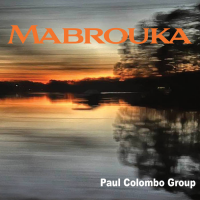
by Dan McClenaghan
Guitarist Paul Colombo is blessed in his collaborative album, Mabrouka, with a group of imaginative and inspired sidemen, including, most notably, keyboardist Ron Thomas. This is Colombo's sophomore outing, following Rio Crystal (Vectordisc Records, 2021), and Thomas, bassist Andy Alonso and drummer Chris Loser make return appearances on Mabrouka. Add guest slots by flutist Tom Strohman and organist Andy Roberts, along with acoustic bassist Steve Meashey on six tunes. The set is tagged, accurately, as a “contemporary jazz ...
Continue ReadingKerry Politzer: Alternate Route

by Dan McClenaghan
A first impression as pianist Kerry Politzer's ninth album spins: This is an artist adept at bringing a band together for a one-day studio outing to play a bunch of her forward-leaning compositions to turn out a vibrant, crisp-sounding set. Obvious also, on tune # 1--"Before It's Too Late"--is that guitarist Kurt Rosenwinkel has a special genius for pairings with pianists. He proved that with his contribution to Jo-Yu Chen's Stranger (Okeh Records, 2014), and he is in the mix ...
Continue ReadingDan McClenaghan's Best Jazz Albums Of 2025

by Dan McClenaghan
The albums on this Best of the Year list were picked on the run, as the months unfolded. Sometimes, second-guessing comes into play at the time of compilation. Not this time. All of these recordings are worthy of being called the Best of 2025. Andrew HillA Beautiful Day, Revisited Palmetto Records Iro HaarlaUnder the Firmament Willa Silva Records
Continue ReadingDavid G White: While You Were Sleeping
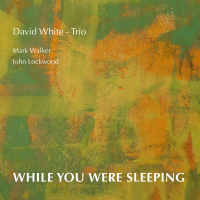
by Dan McClenaghan
Guitarist David White made a splash on Origin Records with his Big Neighborhood band. Neighbors was released in 2005 on the label, followed by 11:11 in 2007. He picked up a Grammy nomination. Both albums pushed boundaries--White cites a wide range of influences: singer/songwriter James Taylor, Latin jazz, Led Zeppelin, McCoy Tyner, bebop and free jazz. Big Neighborhood was a quartet--a saxophone and a rhythm section. For While You Were Sleeping he distills things to the trio format. He ...
Continue ReadingFlirtibird and the Black Thong

by Dan McClenaghan
The Taquito Tuesday thing took off like a rocket down at the Oceanic Brew Pub. It was, from the perspective of the kitchen, an ass buster, one sheet pan of those little rolled tacos after another going into the oven. Fortunately--for the owners, Roy and Rafaela--they had hired Hobgood, a guy who had spent 40 years of his 57 years on Earth working in kitchens. The orders kept coming in, and Hobgood, working like a devil, kept putting them out. ...
Continue ReadingJakob Dreyer: Roots and Things

by Dan McClenaghan
Bassist Jakob Dreyer searched for a new sound for his third album as a leader. He has, for his previous two releases, expressed his art via the standard quartet--sax, bass, drums and piano. For Roots and things, the piano is replaced by Sasha Berliner's vibraphone, joining the leader's other new-to-the-fold sidemen, saxophonist Tivon Pennicott and drummer Kenneth Salters.A vibraphone in the group is an inspired choice. The instrument is seeing a 2024/2025 resurgence. Blue Note Records, in particular, ...
Continue ReadingSatoko Fujii Quartet: Burning Wick
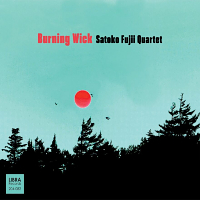
by Dan McClenaghan
Japanese pianist Satoko Fujii is prolific. She has released well over 100 albums in a 30-year career, including a notable stretch in 2018 when she released an album a month. Solo piano outings, duo sets--including several with her husband, trumpeter Natsuki Tamura--trios, quartets, and larger ensembles of every size and shape. A general rule with Fujii: the larger the ensemble, the louder and more brazen the sounds. Her big bands are often particularly riotous. But her small ensembles ...
Continue ReadingMasabumi Kikuchi: Hanamichi--The Final Studio Recording Vol. II

by Dan McClenaghan
Japanese pianist Masabumi Kikuchi (1939 -2015) enjoyed a decent profile via his albums under his own name--30-plus discs--and from his work with drummer Paul Motian and bassist Gary Peacock in his Tethered Moon group. But he deserved more. He was an original who worked in an inspired--if somewhat quirky--journeyman fashion until he bloomed in his late career with a pair of excellent albums on the ECM Records label--Sunrise (2009), a trio outing with bassist Thomas Morgan and drummer Paul Motian; ...
Continue ReadingRahsaan Roland Kirk: Seek & Listen: Live At The Penthouse
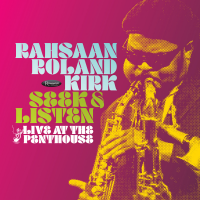
by Dan McClenaghan
Most jazz fans are likely familiar with the visual images that are usually tagged onto the music of Rahsaan Roland Kirk (1935 -1977)--photos of a man in black sunglasses with three (or more) reed instruments around his neck and/or in his mouth. That these optics often precede the experience of the music is ironic, since Kirk himself was blind. But Kirk was a showman. These images caught the attention. And he did indeed play three (maybe only two; maybe the ...
Continue ReadingJussi Reijonen: Sayr: Salt | Thirst
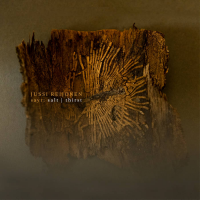
by Dan McClenaghan
Listening to Finish guitarist/oudist Jussi Reijonen's Sayr: Salt | Thirst without delving into his rich backstory is a journey into two extended solo guitar pieces that play out as ruminative dream states. Concentrating on just the sound, images of Lightnin' Hopkins might come to mind: the bluesman huddled down in a small, dim hotel room after a show, improvising outside of time. Or maybe it is Howlin' Wolf sitting on the rumpled bed with the guitar on his lap, in ...
Continue Reading















